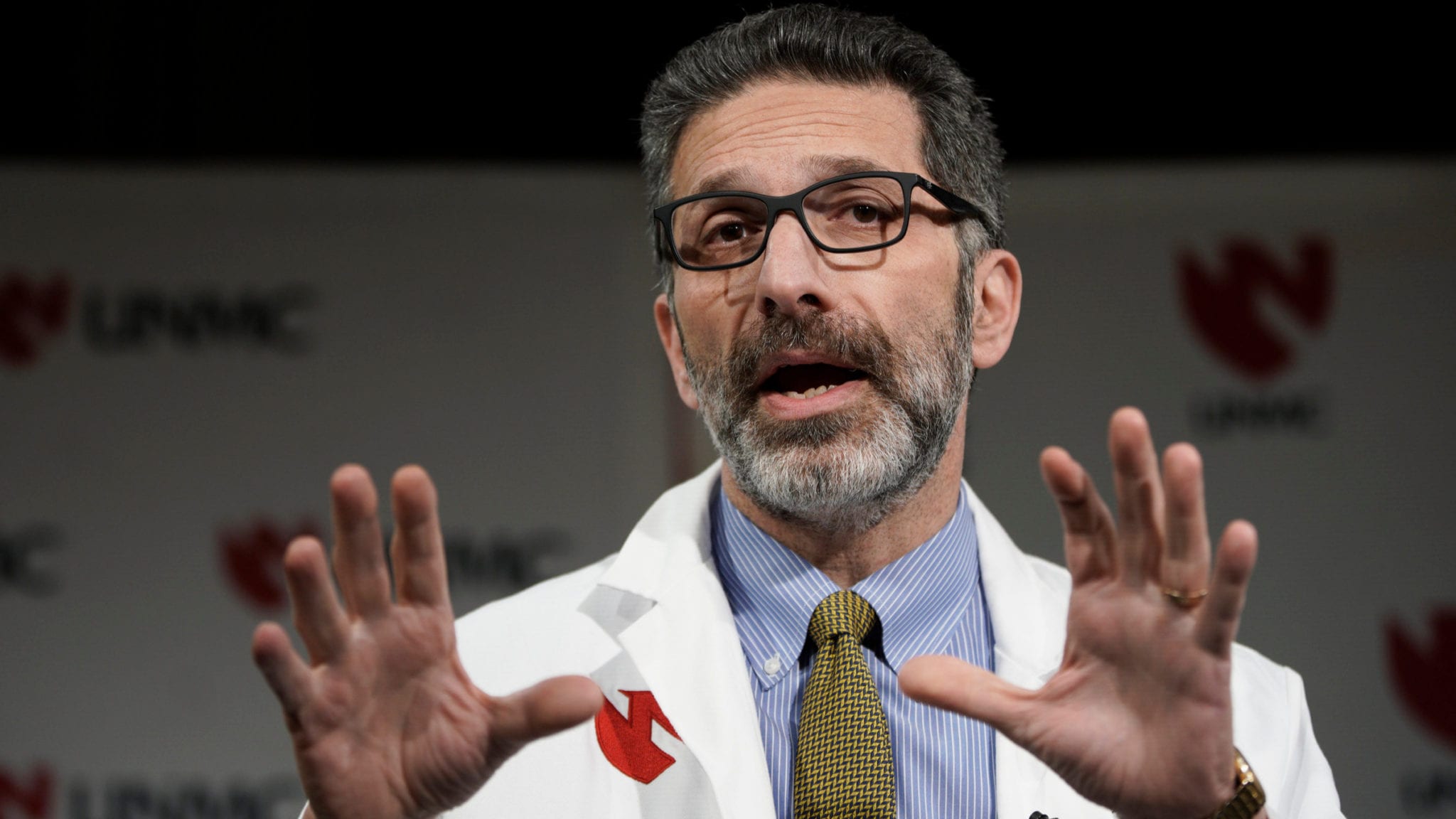
A 9/11-era Omaha facility, an old Ebola drug, and the ubiquitous Dr. Fauci: Inside the first US novel coronavirus trial
The first 11 coronavirus patients who arrived in Omaha last week, airlifted across the globe after two weeks quarantined on a cruise ship, showed only minor symptoms or none at all. And then one of them — or one of the couple of Americans who arrived later — got worse. He developed pneumonia, a life-threatening complication for coronavirus patients.
In a biocontainment room at the University of Nebraska Medical Center on Friday, doctors infused him with an experimental Gilead drug once developed for Ebola, called remdesivir. Or they gave him a placebo. For the first time in the US, neither he nor the doctors knew.
The first US novel coronavirus trial was underway and with it, a mad dash for an answer. Sponsored by the NIH, the study marked a critical point in the epidemic. Since the start of the outbreak, the agency had helped lead a global effort to contain the virus. Now, as it spread worldwide and the CDC issued warnings the US could see a major internal outbreak, they were looking at home.
“We don’t have too much time,” Andre Kalil, the trial’s lead investigator, told Endpoints News. “Everything’s moving really fast.”
Sign up to read this article for free.
Get free access to a limited number of articles, plus choose newsletters to get straight to your inbox.